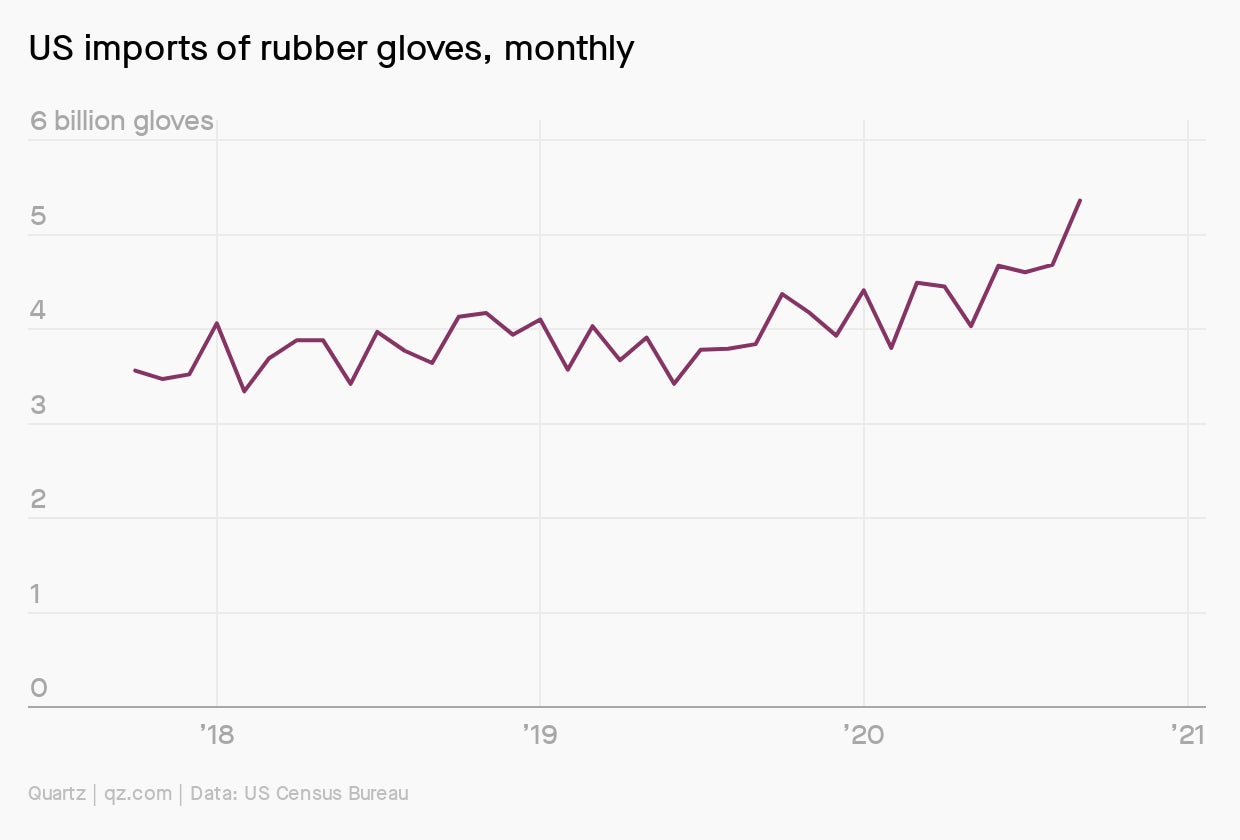Rolling phones, delisting stocks, glowing platypus
Good morning, Quartz readers!

Good morning, Quartz readers!
Here’s what you need to know
Samsung will spend $116 billion on its next-generation chip business. The South Korean tech giant said it plans to mass-produce 3-nanometer chips in two years, setting up a fight with Taiwan Semiconductor Manufacturing Company to supply companies like Apple and AMD.
Oppo unveiled a rolling phone. At its second Inno Day event, the Chinese electronics maker demonstrated a phone with an expandable “rolling” screen and augmented reality glasses, but both are still in the concept stage for now.
The US hopes to vote on foreign stock listing rules by the end of 2020. The regulation is aimed at Chinese companies that refuse US audits, and could result in some firms delisting from American exchanges. The timing is awkward, given the US will have a new president in January and the current Securities and Exchange Commission chair plans to step down before then.
Daimler and Geely are partnering to build engines in China… The German and Chinese automakers will share the costs for developing a next-generation combustion engine for hybrid vehicles. Meanwhile, Chinese electric car manufacturer Nio’s revenue skyrocketed 146% year-over-year in the third quarter, although it reported a loss.
… While a Chinese battery maker is opening a new factory in Germany. The $2.4 billion facility will be SVolt Energy Technology’s first in Europe. Its electric car batteries should start rolling off the assembly line at the end 2023.
The most retailful time of the year
👗 Secondhand is king. The reselling industry is growing at a rate that should make fast fashion nervous, but it could just be another way to encourage excess consumption.
🔮 No one can foretell holiday shopping predictions this year. With no precedent to guide them, the only thing analysts agree on is that ecommerce better be ready.
🙂 But Walmart has hopes for Joe Biden. CEO Doug McMillon just wants everyone to move on and get shopping—hopefully powered by a new stimulus bill.
Charting rubber demand
After a low in April, rubber has bounced back, buoyed by a depressingly strong demand for surgical gloves as the Covid-19 pandemic rages on. US Census data show the number of rubber gloves imported into the US rose 57% to 244 million pairs in the third quarter. Imports of all rubber gloves rose 28% to 14.6 billion pairs in the same period.

It’s not just gloves—tires are where the rubber meets the road, and new tires come standard with every new car. China’s automobile market is making up for lost time, while many Americans are favoring cars over public transit.
Birth of the cool
“Cool” is one of those overused words whose definition has become fuzzy around the edges. Shoppers chase it, companies try to sell it, and generally speaking it indicates something positive, but with a range of connotations including stylish, original, authentic, rebellious, and more.
Originally, though, it had a slightly different meaning. Jazz musician Lester Young coined this usage of cool, unrelated to temperature, in the late 1930s. “When Young said, ‘I’m cool’ or ‘that’s cool,’ he meant ‘I’m calm,’ ‘I’m OK with that,’ or just ‘I’m keeping it together,'” professor and author Joel Dinerstein wrote in his book The Origins of Cool in Postwar America. The modern equivalent might be more like “chill.” For jazz musicians throughout the 1940s and 1950s, this attitude would translate into a sound marked by relaxed intensity and an emphasis on expressing one’s personal style.
To understand this early concept of cool, there’s no better method than listening to it. We asked Dinerstein to create a playlist for Quartz, and he put together a list of tracks representing the original sound of cool as it first evolved in jazz. Listen to it while you read our field guide to the new meaning of cool.
✦ When we say Quartz membership is cool, we mean it just like it sounds. Try a seven-day free trial.
Surprising discoveries
A Minnesota college warned students not to kiss during sex. Other Covid-19 hookup safety tips included suggestions to wear a mask and limit one’s number of partners.
New Zealand’s tainted election has a winner. The fat, flightless kākāpō won Bird of the Year for the second time following a contest marred by fraudulent voting.
The 2-liter bottle needed a refresh. Pepsi’s come up with a shape that’s easier to hold and uses slightly less plastic than the 30-year-old iconic bottle design.
A Chinese county thinks dogs should be indoor pets. But Weixin may have to rethink a ban on dog walking after strong complaints from dog owners.
The platypus just keeps getting stranger. The venomous egg-laying mammal also glows under a blacklight.
Our best wishes for a productive day. Please send any news, comments, award-winning birds, and redesigned packaging to [email protected]. Get the most out of Quartz by downloading our iOS app and becoming a member. Today’s Daily Brief was brought to you by Karen Ho, Jackie Bischof, Liz Webber, and Susan Howson.